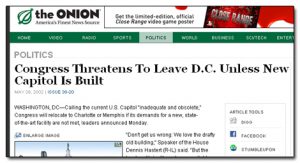 The city of Houston has a lot going for it. A solid economy, high praise for its diversity, a low cost of living all combine to make it a highly desirable destination. But when it comes to our parks, well that appears to be a different story all together.
The city of Houston has a lot going for it. A solid economy, high praise for its diversity, a low cost of living all combine to make it a highly desirable destination. But when it comes to our parks, well that appears to be a different story all together.
The Trust for Public Land’s ParkScore® recently released its 2017 index to measure how well the 100 largest U.S. cities are meeting the need for parks. Houston comes in tied at 81 (Newark and Wichita were also ranked 81st).
The index utilizes mapping technology along with demographic data to determine how well cities are meeting the need for parks. It takes in factors such as percent of park land in a city, the spending per capita and even the number of basketball hoops and dog parks per 100,000 residents.
Each city can earn a maximum score of 120 points . (Houston scored 39). Points were awarded for eight statistical measures in three categories: acreage, facilities and investments and access. The total is than normalized to a scale out of 100. This final value is the city’s ParkScore. Minneapolis came in at number one with a score of 87.5.
Houston’s ranking was heavily impacted by its investment grade, earning a 2 out of a possible 20 points on what the city spends on its parks. Back in 2012, ParkScore reported the Bayou City spent $43 per resident on its parks. Today that amount is $35 (Minneapolis spends $233 per resident).
The map indicates where ParkScore feels there are park gaps. Park gaps are based on a dynamic 1/2 mile service area (10 minute walking distance) for all parks. In this analysis, service areas use the street network to determine walkable distance – streets such as highways, freeways, and interstates are considered barriers.







